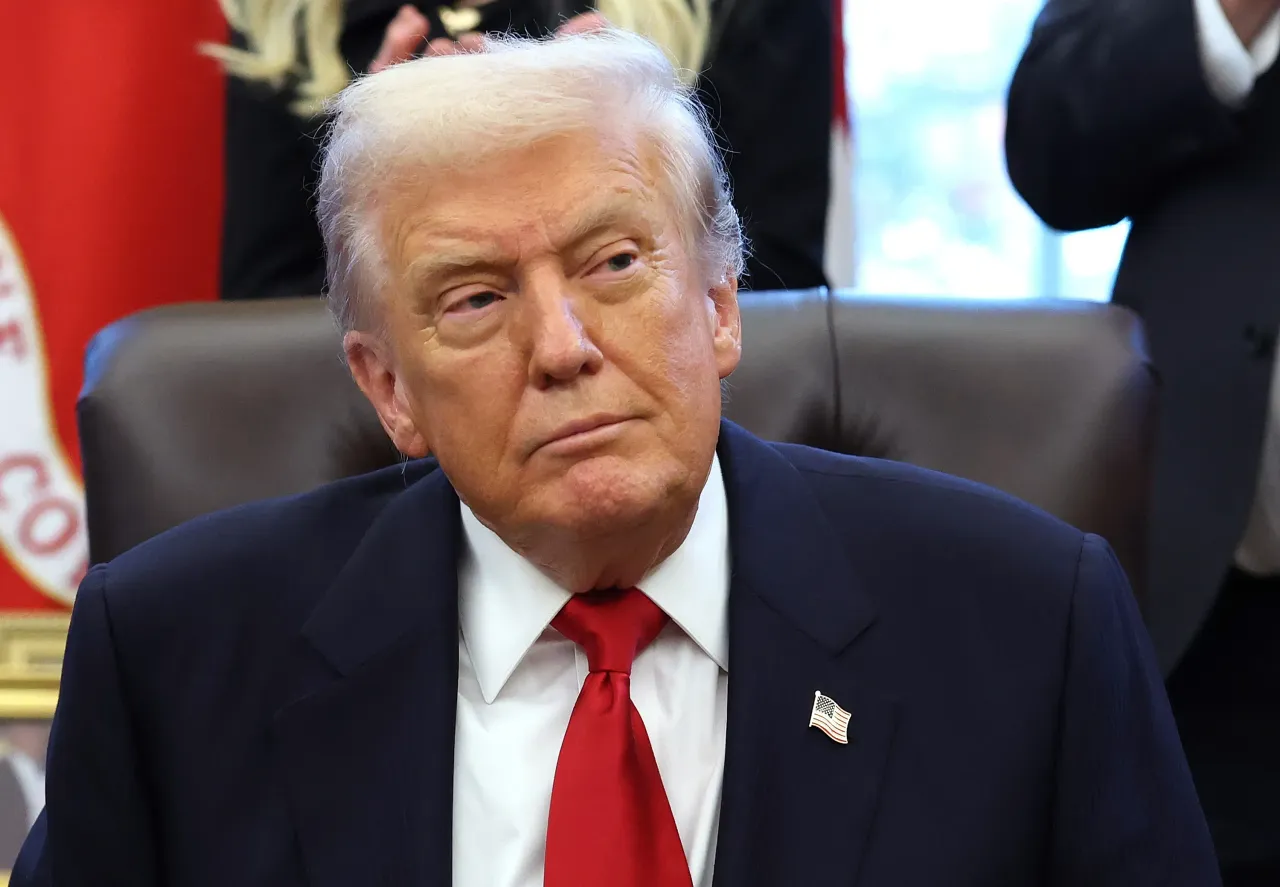Advertisement|Remove ads.
Trump Pushes For One Federal AI Rulebook — Warns ‘Patchwork’ Of 50 State Regulations Could Kill Innovation, Boost China

- President Donald Trump suggested that the U.S. should adopt a single federal law to regulate AI, in place of the current patchwork of state laws.
- "If we don't, then China will easily catch us in the AI race," he said on social media.
- Easing AI regulation and promoting development have been key policy priorities for Trump since he became POTUS earlier this year.
President Donald Trump on Tuesday pushed for a unified federal standard to regulate artificial intelligence (AI), warning that a patchwork of state-level rules could hamper U.S. progress in frontier technology and allow China to catch up.
"Investment in AI is helping to make the U.S. Economy the 'HOTTEST' in the World, but overregulation by the States is threatening to undermine this Major Growth' Engine,'" Trump said in a post on his Truth Social account.
"We MUST have one Federal Standard instead of a patchwork of 50 State Regulatory Regimes. If we don't, then China will easily catch us in the AI race," he added, without providing details on the framework he proposed.
He, however, suggested that a unified AI framework could be written into the National Defense Authorization Act (NDAA) — the annual legislation through which Congress sets policies and authorizes budgets for U.S. national defense — or introduced as a standalone bill.
Easing AI regulation has become one of Trump's top policy priorities in his second term. In July, his administration unveiled an AI Action Plan that aims to accelerate innovation, fast-track data center buildout, loosen regulatory red tape, and require that AI models used by the federal government be "objective" and free from ideological agendas.
Trump Aligns With Nvidia CEO
The President's stance mirrors what Nvidia CEO Jensen Huang has been saying for some time. Earlier this month, Huang warned that China is only "nanoseconds" behind America in the AI race and pointed to new U.S. AI regulations that could trigger "50 more" rules. He also noted that China's energy subsidies have made power cheaper for tech companies — an issue Trump has similarly emphasized in his energy policy agenda.
The long-running tussle over tariffs aside, the U.S. remains acutely aware of China's expanding geopolitical influence, military buildup, and rapid advances in cutting-edge technologies. With AI emerging as a key growth driver for businesses and the stock market, Trump wants the U.S. to maintain its lead and, albeit somewhat obscurely, impede China's progress in the field.
Even though the U.S. has blocked the sale of certain advanced Nvidia AI chips to China on national security grounds, China has still advanced rapidly in AI. Major players such as Alibaba and Baidu, as well as upstarts like DeepSeek, have launched AI products that drew global attention this year.
In the U.S., market leader OpenAI continues to scale rapidly, while Big Tech giants such as Google, Microsoft, and Amazon have pledged significantly higher spending on AI products and infrastructure. Nvidia, the bellwether for AI investment, will report results on Wednesday evening, offering the latest read on the state of the AI industry.
In the year-to-date, the SPDR S&P 500 ETF Trust (SPY) has advanced 12%, while the Invesco QQQ Trust Series 1 (QQQ), which tracks U.S. tech shares, has gained 16%. In comparison, the KraneShares CSI China Internet ETF (KWEB), which tracks Chinese tech stocks, has risen 31.2%.
For updates and corrections, email newsroom[at]stocktwits[dot]com.











/filters:format(webp)https://news.stocktwits-cdn.com/large_Getty_Images_2264020227_jpg_4d7420bef3.webp)
/filters:format(webp)https://news.stocktwits-cdn.com/Anushka_Basu_make_me_smile_in_the_picture_b92832aa_af59_4141_aacc_4180d2241ba8_1_2_png_1086e0ed8c.webp)
/filters:format(webp)https://news.stocktwits-cdn.com/large_Getty_Images_2259210190_jpg_d48bbe3269.webp)
/filters:format(webp)https://news.stocktwits-cdn.com/large_Getty_Images_1396534113_jpg_b0e09f299b.webp)
/filters:format(webp)https://news.stocktwits-cdn.com/large_Jane_Street_3ac3fb6443.webp)
/filters:format(webp)https://news.stocktwits-cdn.com/large_Truth_social_5bfbc7389b.webp)
/filters:format(webp)https://news.stocktwits-cdn.com/large_Getty_Images_2221283194_jpg_8178c730a4.webp)